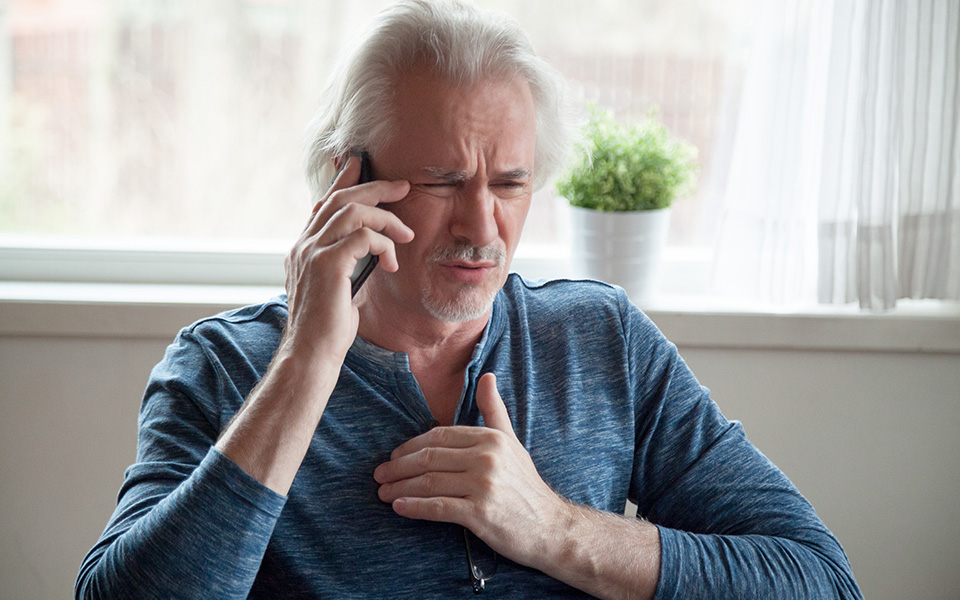Arm and chest pain are common signs of a heart attack, but sometimes your symptoms may not be what you usually associate with a cardiac episode. Silent heart attacks don’t present the usual warning signs, so you might not realize you had a heart attack until weeks or months later. And that can cause significant damage to your heart muscle.
Here are the top five most overlooked signs of a heart attack.
#1: Sweating
During a heart attack, you may experience flu-like symptoms like cold sweats. Take note if you start sweating while resting or doing activities that don’t require much effort. It may be caused by an overactive sympathetic nervous system kicked into high gear by a heart attack. Your sympathetic nervous system is responsible for your “fight or flight” response to stress, and a heart attack triggers physical reactions that release stress hormones, causing sweating.
#2: Heartburn and Indigestion
It can be difficult to distinguish regular heartburn from a heart attack-induced symptom. Heartburn is caused by stomach acid rising into your esophagus. The resulting discomfort can spread to your chest, neck and jaw, so monitor the severity and length of your heartburn. If a heart attack is the cause, heartburn is usually accompanied by shortness of breath and sweating. Nausea, acid reflux and indigestion are more common during a heart attack in women, seniors and people with diabetes.
RELATED ARTICLE: The Difference Between Heart Failure and Other Heart Diseases
#3: Dizziness and Fatigue
Your heart muscle gets damaged from a lack of blood flow during a heart attack. That means your heart can’t successfully pump oxygen-rich blood to the rest of your body, including your brain. You may experience dizziness and fatigue because your brain isn’t getting enough oxygen to function properly. Be mindful of dizziness and fatigue that is persistent and unexplained, as that may be a sign of a heart attack.
#4: Jaw, Shoulder and Upper Back Pain
A heart attack affects your entire body, so you may feel tension or pressure in your shoulders, upper back, neck and jaw. The decreased blood flow caused by a heart attack strains your heart, and discomfort can spread to other areas around your chest. Jaw and neck pain can come on suddenly or be exacerbated by physical activity. Pain in your upper back, neck and shoulders will usually last longer than a few minutes and can feel like your muscles are tightening. You may also feel like you have a dull toothache if you have jaw pain.
RELATED ARTICLE: What to Expect During Cardiac Rehabilitation
#5: Shortness of Breath
It’s important to take note of any shortness of breath while you’re relaxing or doing activities that wouldn’t normally be strenuous. It’s possible to mistake shortness of breath for asthma, but you should seek immediate medical attention if you have accompanying chest pain. Feeling winded is caused by the lack of oxygenated blood in your lungs and can leave you struggling to inhale. Shortness of breath is more common in women during a heart attack.
Call 911 immediately if you believe you or a loved one is having a heart attack. Quick action will reduce the likelihood of lasting damage.
Contact Embassy Healthcare to learn about our cardiac care and rehabilitation or if you have questions regarding heart attack symptoms.

